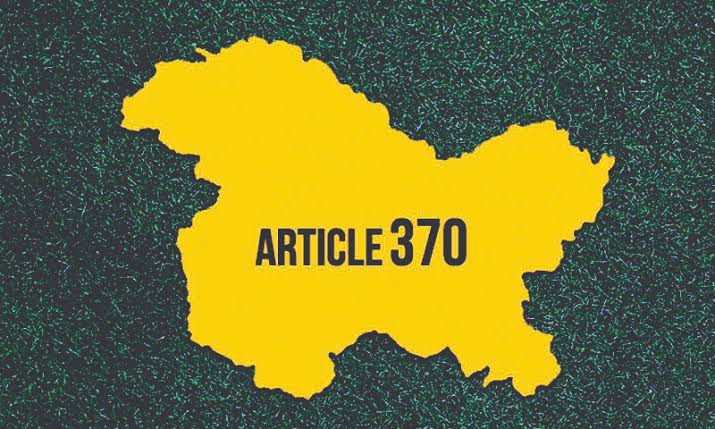
The Supreme Court of India is hearing the petitions challenging the abrogation of Articles 35A and 370 for the third day on Tuesday.
Challenging the abrogation at the hands of central Government on August 05, 2019, more than twenty petitions have been filed in the Apex court of India.
A Five-judge Constitution bench of the Supreme Court led by CJI DY Chandrachud is hearing the petitions challenging the abrogation of Article 370 of the Constitution.
After having delayed the hearing of petitions for several months, the court in July agreed to hear the case on day to day basis.
Senior Advocate and Parliamentarian, Kapil Sibal representing the Jammu Kashmir National Conference, on first two days challenged the August 05 decision arguing that over the years, the Article 370, that granted a special status to Jammu Kashmir, had gained a permanent status after 1956 when the constituent assembly was dissolved.
The central Government has told the court to not fiddle with the Article 370 and undo the August 05, 2019 decision as it may harm “national interest.”
Former legislators and people of Jammu Kashmir in general have pinned their hopes at the court hearings. The Live broadcast that is run on several YouTube channels is witnessing an unprecedented viewership.
Here are the live updates from the Supreme court
1045 A.M: Justice Kaul says no fresh submissions will be accepted from either of the sides.
11:00 AM: Kapil Sibal starts reading from Sheikh Abdullah’s speech to the constituent assembly from September 1951.
11:05 A.M: Number of people watching the live broadcast from Supreme court’s channel crosses 1,000. Several other YouTube channels are broadcasting the hearings with higher viewership.
11:10 AM: CJI: Looks like Sheikh Abdullah had a great vision. He is talking about globalised concepts back in 1951. We are talking about them now.
11:20 A.M: It was a constitutional fraud. The parliament’s abrogation of Article 370 was politically motivated.
Justice BR Gavai: you are saying parliament can do it?
Sibal: when you want to severe a relationship which has been entered into.. you must seek the opinion of the people..But in Kashmir, it was done unilaterally.
Sibal continues
this is a political act and not a constitutional act. You wanted to do something and you have done it. I do not think this has happened in any constitutional democracy.
Boris Johnson had asked the Queen to prorogue the house. It was done. The UK Supreme court unanimously held that you cannot use executive power to bypass the parliament..
you give powers to governor which he does not have.. you invoke all powers under article 356…what kind of exercise of law is that? Then what powers does the president have to pass such an order.
12:05 P.M: Justice Khanna: Interpretation clause cannot be amended?
Sibal: No, by interpretation, you cannot amend 370. You cannot substitute Constituent Assembly. What you can’t do directly, you can’t do indirectly.
So I will not amend 370 but I’ll amend 367 to amend 370
12;15 P.M: CJI: You’re right, therefore the government has no power to amend 370 by itself, (Live Law)
Sibal: You cannot change the scheme of 370, forget abrogating it.
CJI: But 370 itself postulates that it can be abrogated.
Justice Khanna: Under clause (d) of 370(1), the President can make modifications in the constitution.in order to make these modifications, what would be the procedure?
Sibal: That’s an interpretation clause, that’s not a clause to amend constitution.
1:02: The bench rises up for lunch. The proceedings will resume at 2 P.M
2:00 P.M: The bench gathers post lunch
Sibal resumes: The language used in provisions of Article 370 have to be seen in the historical context and there cannot be ambiguity read into it when there is none.
Second if there is textual ambiguity the court should not be adrift in the sea of pragmatism.
Sibal: the power under article 3 does not extend in effacing the character of a state into the union territory.
Sibal: Can a state be demoted to a union territory by the centre at its own whims without consulting the people who would be affected.
2:40 P.M: Sibal: On Nov 21 , 2018, the governor had no power to dissolve the assembly. The Constitution does not allow that without his council of ministers. He knew the council of ministers would not allow and thus he did it on his own. He is not an omnipotent authority but has delegated power.




